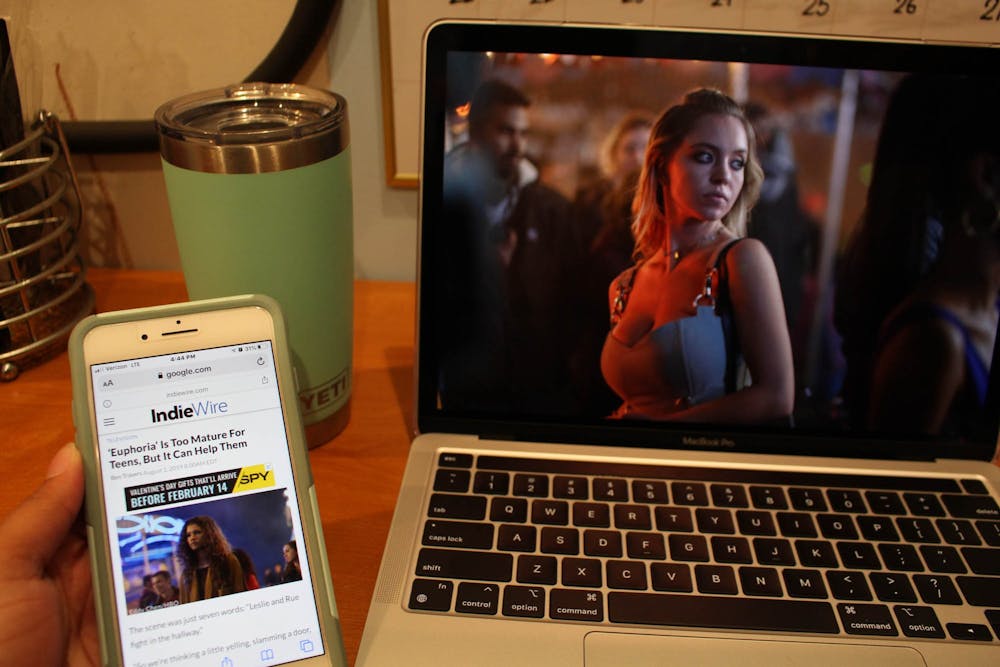Right before the neon title hits, HBO’s "Euphoria" spends two minutes lensing into teenager Jules’ (Hunter Schafer) eyes. Memory after memory spills out in swift beats: vignette portraits of love, addiction, gender dysphoria, trauma and sex. It’s difficult to parse what feels real and what feels pornographic. Wincing feels like an inflammatory response — but yet, you can’t look away.
Despite the show’s inadequacies, its capital-G Grotesque style and ability to provoke even the most deadened of audiences means something. It’s a sea change in the way that we talk about the private, sexual lives of young women.
Since its initial release in 2019, "Euphoria" — an Americanized version of an Israeli teen drama — has garnered rife analysis for both its kaleidoscopic, sensual visual style and its provocative subject matter. Disenchanted critics call it “adult;" the younger, starry-eyed crowd calls it “realistic.” Rue (Zendaya) is a recovering teenage drug addict, who befriends transgender classmate Jules Vaughn, who herself cruises for sex with anonymous older men online.
Teenagers doing drugs and having sex in high school is part of modern American mythology, especially in media (if you have a problem, take it up with "Grease"). To suggest otherwise is to be obtuse about teenage life — and it shows one’s true colors in the process. Clean-cut, varsity-lettering, Archie-and-the-gang Americana is rooted in a fundamental whiteness. "Euphoria" is not interested in playing that game, and it’s all the better for it.
What we find in stunning performances by Zendaya and Schaefer about addiction and transgender violence, respectively, is a deeper meditation on what we owe each another, and what we desire from our romantic and sexual relationships.
The show's sincerity about the lives of Gen-Z youth — painting an accurate and violent picture of addiction, gender, sexuality and abuse — is both the apex and the nadir of its worth. A scene in season one, in which Rue brandishes a weapon against her own mother while relapsing, is stunningly upsetting in its truthfulness.
Other scenes, such as when high school cheerleader Maddy (Alexa Demie) has public sex in the middle of a party, in an effort to make her boyfriend jealous, feel regressive and tacky in their attempt to shock us. These scenes, which are unfortunately more commonplace, complicate ideas of authentically portraying the sex lives of teenagers without using a pedophilic lens.
Perhaps because the show — which chiefly deals with the sociosexual narratives of Gen-Z women — is directed by a 36-year-old man, these ethical questions are never considered.
Levinson’s direction doesn’t benefit its subject matter. A moment that should incite a flurry of emotion — when Rue and Jules, at a carnival, find out the real identity of an anonymous Grindr hookup that Jules had fallen in love with — is shot first through the candy-colored netting of a game booth. When we most want (and need) to see these women’s faces, we can’t.



